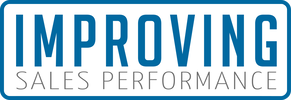 Are you a sales leader who sees that your organization needs to undergo a deep-seated, positive change? If the answer is yes, then you need to make an important determination: Are you the right person to implement that change, or should you play a supporting role? In other words, are you the change agent or the champion? Change Agent Vs. Champion In a previous blog, we talked about the main goal of a change agent — to affect powerful, lasting change within an organization. Change agents are more like guides than they are supervisors. Their job is to approach underlying issues and bottlenecks in the sales process with an open mind, like an investigative reporter approaches a "developing story. They must ask probing questions, listen to understand, and get buy-in from the entire team. Their sales leadership role is essential to making the organization's vision a reality. Change agents have a lot on their plate, right? However, a change agent's effectiveness is limited without the support of a champion. The champion is the sales leader who discerns the problem, and has the authority to assign a change agent. He then supports the change agent as he/she gets to work. The role of the champion is supportive in nature, but absolutely essential if you want the best outcome for your company. Which Sales Leadership Role is Yours? This is a key question to answer early on. After all, you don't want to spend the next several months in "shoes that don't fit!" Here are a few indications that you can take on the role of change agent.
If you can check all of these boxes, then you may be able to take on the role of the change agent. On the other hand, you might have a full plate already. Maybe the thought of carving out 10 extra hours a week seems like an insurmountable obstacle. Or perhaps you don't naturally have the personality or skill set that's required for an effective change agent. There's no shame in knowing your limits. If you conclude that it wouldn't be realistic for you to take on the duties of a change agent, then you can start the search for someone else to handle that responsibility. What Resources Will the Champion Provide to the Change Agent? If you are going to play the role of the champion, then there are two important resources you must provide the change agent (once you appoint him/her). 1. Ample Time to Work They say that "Rome wasn't built in one day." The same principle is true of organizational change. Your change agent is going to need enough time, over the course of several months, to identify areas of opportunity, explore options for change, and then implement those findings. A change agent's average time commitment is usually 10 hours per week. This includes meeting with the organization's Improvement Team on a regular basis. They also need time alone to process the results of those meetings and come up with potential solutions for your sales team. 2. A Reasonable Level of Authority A change agent also needs, well, a certain level of agency in order to handle their sales leadership role effectively. This will include the authority to call meetings, to pull your sales reps into those meetings, and to maintain confidential communication with team members. A change agent also needs the authority to assign employees individual (and even group) work to do. In fact, if you're going to be a truly supportive champion, you should even empower your change agent to hold you accountable for any work they need from you. How to Identify the Right Change Agent Any potential change agent you identify will need to possess 3 key qualities.
The question is, where you should look for that change agent? The natural fit may seem to be someone who's already in a sales leadership position in your company, either in sales or marketing. The obvious advantage of going that route is the person's pre-existing familiarity with your sales process, and any problem areas. Of course, that familiarity may be a double-edged sword. Perhaps your sales and marketing managers are too close to the problem. Or, there may be some internal friction that will hamper their effectiveness as change agents. If that's the case, then you can broaden the scope of your search to include leadership from different departments. For instance, maybe your VP of finance has the right skill set (and distance) to lead the conversation around positive change. (And if they need some help in that role, you can always assign an assistant to lend a hand.) Then again, what if every potential change agent in your organization is slammed with work, lacks the required skill set, or doesn't have the distance to successfully navigate volatile team dynamics? If that's the situation you're facing, then it may be best to bring someone in from the outside. As the champion, you'll have to make sure that this external change agent has the resources they need for success. At the same time, you may need to set up certain safeguards in order to trust them with private information. Effective Sales Leadership Results in Greater Performance Whichever route you decide to take, remember that regular, two-way communication between you and the change agent is vital. If you both are closely aligned towards your common sales goals, then you'll be able to make a lasting change within your organization. The result of an effective sales leadership strategy will be improved, sustainable sales performance. Gain more insights and effective sales leadership techniques for your SMB. Sign up for our newsletter. Contact us directly, or explore our website for other valuable resources and webinars. Comments are closed.
|
Meet Me
Archives
April 2024
Categories
All
|
|
We are headquartered in Colorado with domestic and international teammates and clients. Please use the contact form on this page to inquire about any of our books, podcasts appearances, speaking engagements and workshops, any of our offerings, or simply to connect.
|
© Improving Sales Performance. All Rights Reserved.


 RSS Feed
RSS Feed
